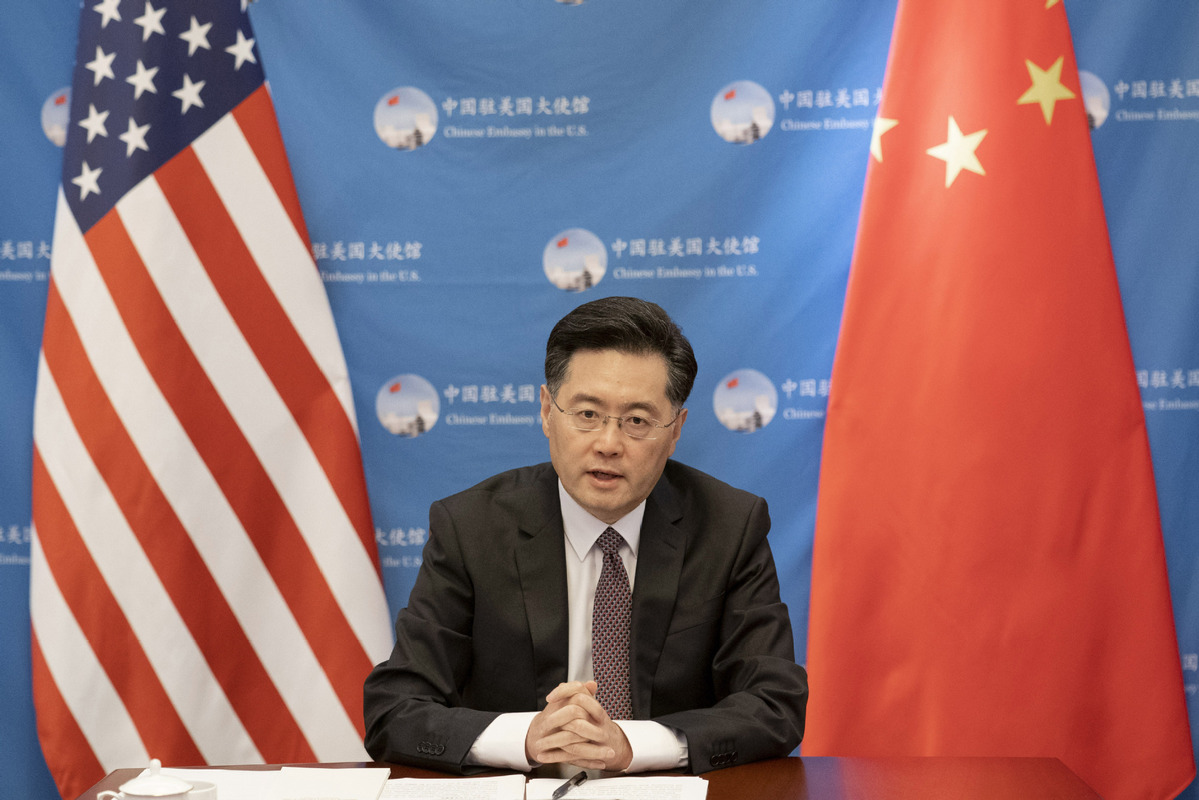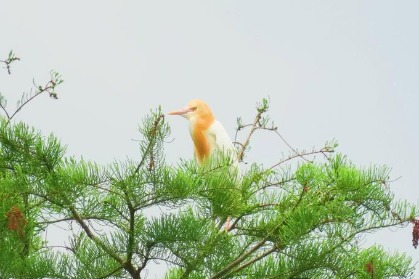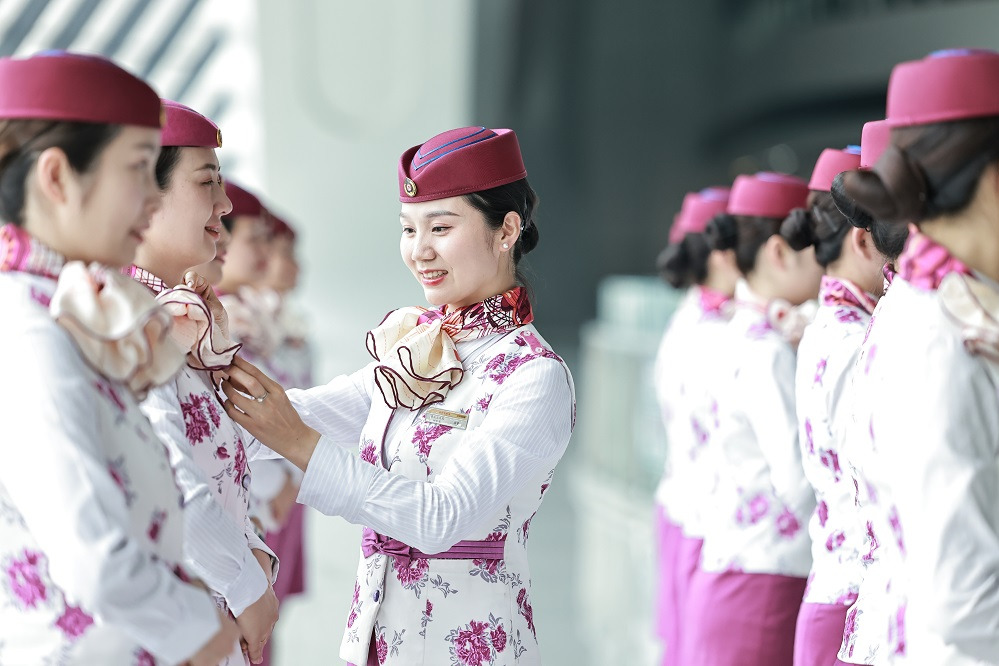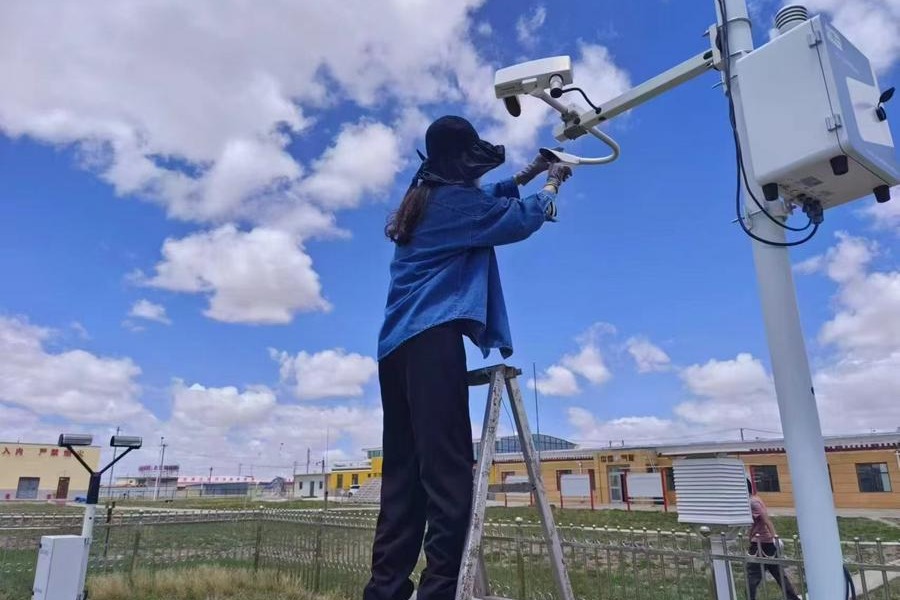Envoy says US to blame for tension across Straits






Straits: US responsible for 'consequences for escalating tensions'
It's not China but the "Taiwan independence" separatist forces and the United States that are changing the status quo of the Taiwan Straits, and Beijing's countermeasures following US House Speaker Nancy Pelosi's visit to the Taiwan region are justifiably strong, and are not an overreaction as a "pretext" for a "new normal".
The remarks were made by Chinese Ambassador to the US Qin Gang when he met with a group of US media representatives in Washington on Tuesday, two weeks after Pelosi's provocative trip to Taiwan, which came despite strong opposition from China.
While the visit seriously violated the one-China principle and the commitments made by the US, some in the US do not recognize and correct their mistakes but choose to "confound black with white and reverse the narrative, slinging mud at China", Qin said.
Last week, US National Security Council Indo-Pacific Coordinator Kurt Campbell claimed that China used the visit as a "pretext" to launch an intensified pressure campaign against Taiwan and to try to change the status quo.
However, Qin said, "a basic fact is, the US side took the first step to provoke China on the Taiwan question. This has openly infringed on China's sovereignty and territorial integrity."
Beijing had made utmost efforts to prevent this crisis from being imposed on China, including expressing firm opposition at various levels and through various channels, and warning that if Pelosi made the visit, there would be very serious consequences and a firm and forceful response, Qin said.
"To our regret, the United States chose not to listen," he said, and urged the US to earnestly abide by the one-China principle and the three China-US joint communiques.
The joint communiques, including the August 17 Communique, constitute the political foundation for bilateral ties and are all based on the one-China principle, Foreign Ministry spokesman Wang Wenbin said on Wednesday, which marked the 40th anniversary of the publication of the China-US Communique on US Arms Sales to Taiwan, commonly known as the August 17 Communique.
"It was because ... the US recognized that there is only one China and Taiwan is part of China ... that the two countries with different social systems and ideologies and at different development stages started dialogue and cooperation and achieved important outcomes that benefited both sides and the world at large," he said.
However, the US has seriously violated the one-China principle by substantially relaxing restrictions on official exchanges with the Taiwan region, increasing military contact with the island and selling weapons to it on a larger scale and with enhanced capability.
"The US must bear all the consequences for escalating tensions across the Taiwan Straits," Wang said.
According to the spokesman, more than 170 countries have voiced their commitment to the one-China principle and opposition to the US' provocation. Among them are 20 heads of state, seven deputy or vice-heads of state, and nine heads of government.
In another development, Ma Xiaoguang, spokesman for the Taiwan Affairs Office of the State Council, said on Wednesday that the Chinese mainland's punitive measures on die-hard "Taiwan independence" separatists, including banning them from entering the Chinese mainland and the Hong Kong and Macao special administrative regions, are completely justified, reasonable and legitimate.
Anyone who endangers national sovereignty, security and development interests cannot escape justice, Ma said, after the Democratic Progressive Party authorities in Taiwan claimed that the sanctions announced on Tuesday are "null and void".
Ma said that more necessary measures will be adopted to foil any attempt to split the country if the DPP authorities continue to support the provocations of die-hard "Taiwan independence" separatists.
- Delivering social benefits
- Shenzhou XIX crew returns safely to 'beautiful, blue' Earth
- Ordinary work, extraordinary workers
- AI agent to improve international law services in Shanghai
- Intl Services Shanghai expands reach with launch of Italian-language website, multimedia platforms
- China opened more than 900 national wetland parks in over two decades

































